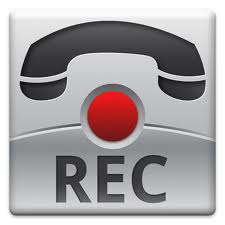 No Cost Conference offers free conference call recording with both our Free Conference Calling Standard and Free Conference Calling with Web Control services. Users sometimes have questions about the legality of recording their conferences. State and Federal laws have a lot to say about recordings of calls between two people. Do these laws affect conference calls, too?
No Cost Conference offers free conference call recording with both our Free Conference Calling Standard and Free Conference Calling with Web Control services. Users sometimes have questions about the legality of recording their conferences. State and Federal laws have a lot to say about recordings of calls between two people. Do these laws affect conference calls, too?
The short answer is, yes. But there is some gray area too.
Basically there are two kinds of required consent for call recording: One Party and Two (or All) Party.
One party consent means that only one party, typically the caller doing the recording, needs to give consent. This eliminates anonymously recording another person’s phone call, which is always illegal without a court-issued warrant. In terms of our conference calls, it is assumed that the host will be pressing the record button, and participating, so that qualifies as their own consent.
Two Party, or All Party consent is pretty straightforward. All callers must be informed of the recording. The term Two-Party consent is referring to the standard one-to-one phone call situation. As it relates to conference calls, it means that all callers must be informed. The best way to do this is to include a standard message about call recording in the introduction of each of your conference calls. Get in this habit, and you’ll have covered your bases.
Exception: Business calls with investors. These calls are required by law to be recorded, so all callers should assume this is the case. It’s also a great use for NCC Conference Calling with Web Control. (Our standard free service also offers call recording, but it’s easier to manage using the Web Control product).
Now, there are variations in consent laws from state to state. In most cases, the law of the state that the caller(s) reside in will be in effect (see below for individual states). However, if your conference call includes callers from multiple states, we enter a gray area. Most legal experts agree that in these cases federal law applies, and only one-party consent is required. But there are almost no case law precedents on this subject, so it’s not particularly clear.
Bottom Line: If you plan to record the call, announce it to all callers at the beginning, and you’ll have acted responsibly.
Disclaimer:This article is not meant to give legal advice, but rather to inform you of the different laws that exist in regards to recording consent, and how it relates to conference calling. Please seek legal counsel if you have additional questions.
More details on Federal and State Laws:
Federal law allows recording of phone calls and other electronic communications with the consent of at least one party to the call. A majority of states have adopted wiretapping/recording statutes based on federal law. 38 states and Washington, DC permit users to record telephone conversations of which they are a participant, without informing the other callers that they are doing so.
12 states require, under most circumstances, the consent of all parties to record a call. These include California, Connecticut, Florida, Illinois, Maryland, Massachusetts, Michigan, Montana, Nevada, New Hampshire, Pennsylvania and Washington.
It is illegal under all jurisdictions, state and federal, to record calls in which one is not a party.





